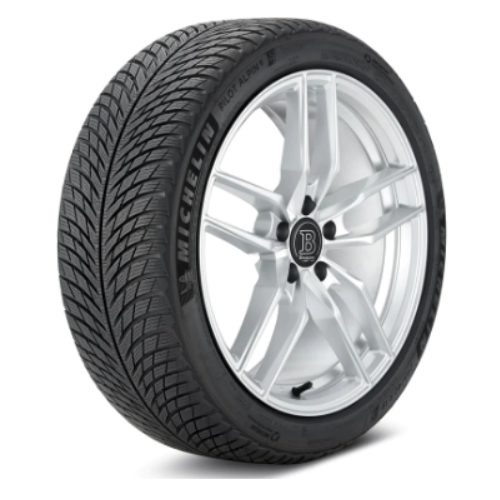Tires are often overlooked when purchasing a new car; some drivers even use the same set of tires throughout the year. While using the same set of tires all year round is considered the norm in some countries, it can be detrimental in Canada. According to statistics, weather-related accidents are one of Canada’s leading causes of car accidents. A study in 2020 showed that heavy snow, light snow and hail were present in over 1,500 accidents. Due to Canada’s extreme winter conditions, we strongly advise all vehicle owners to purchase the right set of tires.
A common misconception that vehicle owners have is that all-season tires are suitable for “all seasons” as it says so in the name! However, that is not the case. All-season tires are only ideal during certain seasons of the year and should be replaced according to the weather conditions. Read on to learn more about all-season tires and all-weather tires.
All-Season Tires
Before deciding on purchasing your next tire set, you must first consider your seasonal driving conditions. Will you be driving in wet conditions? Do you often encounter snow during the winter? How low does the temperature drop in winter? All these questions will help you determine the kind of tire you need.
All-season tires are often referred to as “three-season” tires as their performance drops significantly at temperatures below 7ºC. The tread pattern on all-season tires is primarily designed to provide low-rolling resistance and reduce noise rather than increase the vehicle’s stability on slippery surfaces. Unlike other tires, all-season tires’ optimal performance is during spring, summer and fall and they are only intended to be used in dry, warm and mild wet conditions. So if you’re looking for tires that will ensure stability and safe driving during all seasons, including Canadian winter, you cannot depend on all-season tires.
All-Weather Tires
Unlike all-season tires, all-weather tires are true to their name. They are considered a hybrid tire that can safely cover you in warm, mild and some non-extreme weather conditions. Typically, all-weather tires offer you the best of both worlds where you’re getting exceptional performance in the summer, fall and spring months while also getting good performance during winter. They can withstand heavy rain, light and heavy snowfall and the frequent slush on the road. All-weather tires are manufactured using a rubber compound that is engineered to grip, flex and perform at temperatures below and above 7ºC. Their aggressive tread design also offers drivers significant winter slip resistance while also ensuring sensitive handling in warmer weather.
The Importance of a Tire Shop
It’s no surprise that new tires are expensive. Some customers who are looking to maximize the value and lower the cost of purchasing new tires often decide to install their new tires independently. While that might reduce your cost, it maximizes the risks. When installing your tires, tire balancing is mandatory, especially for new tires, as it gives you a smoother ride and better gas mileage, protects your vehicle’s suspension and extends the life of your tires. Drivers who neglect to balance their tires often experience excessive vibration due to their unbalanced tires wobbling or hopping up and down the road. To avoid long-term damage and premature tire wear and tear, balance your tires at the tire shop.
Canada Custom Autoworks: One-Stop Tire Shop
As you’ve read above, there is much more to safe driving than finding the right kind of tire for your car. Experts at Canada Custom Autoworks will help you find the right tire for your vehicle and discuss your options for all-wheel drive and 4-wheel drive vehicles. We also offer a wide range of services, including tire balancing and mounting to improve the performance of your tires and increase their lifespan. Contact us today to learn more about our tire selection, or visit one of our many tire shops across Canada!
